“Punting the Pundits” is an Open Thread. It is a selection of editorials and opinions from around the news medium and the internet blogs. The intent is to provide a forum for your reactions and opinions, not just to the opinions presented, but to what ever you find important.
Thanks to ek hornbeck, click on the link and you can access all the past “Punting the Pundits”.
Yves Smith: Why are the big banks getting off scot-free?
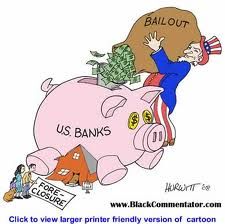
For most citizens, one of the mysteries of life after the crisis is why such a massive act of looting has gone unpunished. We’ve had hearings, investigations, and numerous journalistic and academic post mortems. We’ve also had promises to put people in jail by prosecutors like Iowa’s attorney general Tom Miller walked back virtually as soon as they were made.
Yet there is undeniable evidence of institutionalized fraud, such as widespread document fabrication in foreclosures (mentioned in the motion filed by New York state attorney general Eric Schneiderman opposing the $8.5 billion Bank of America settlement with investors) and the embedding of impermissible charges (known as junk fees and pyramiding fees) in servicing software, so that someone who misses a mortgage payment or two is almost certain to see it escalate into a foreclosure. And these come on top of a long list of runup-to-the-crisis abuses, including mortgage bonds having more dodgy loans in them than they were supposed to, banks selling synthetic or largely synthetic collateralized debt obligations as being just the same as ones made of real bonds when the synthetics were created for the purpose of making bets against the subprime market and selling BBB risk at largely AAA prices, and of course, phony accounting at the banks themselves.
Paul Krugmn: Credibility, Chutzpah and Debt
To understand the furor over the decision by Standard & Poor’s, the rating agency, to downgrade U.S. government debt, you have to hold in your mind two seemingly (but not actually) contradictory ideas. The first is that America is indeed no longer the stable, reliable country it once was. The second is that S.& P. itself has even lower credibility; it’s the last place anyone should turn for judgments about our nation’s prospects.
Let’s start with S.& P.’s lack of credibility. If there’s a single word that best describes the rating agency’s decision to downgrade America, it’s chutzpah – traditionally defined by the example of the young man who kills his parents, then pleads for mercy because he’s an orphan.
THE Great Recession of 2008 has morphed into the North Atlantic Recession: it is mainly Europe and the US, not the major emerging markets, that have become mired in slow growth and high unemployment. And it is Europe and America that are marching, alone and together, to the denouement of a grand debacle. A busted bubble led to a massive Keynesian stimulus that averted a much deeper recession, but that also fuelled substantial budget deficits. The response – massive spending cuts – ensures that unacceptably high levels of unemployment will continue, possibly for years.
The European Union has finally committed itself to helping its financially distressed members. It had no choice: with financial turmoil threatening to spread from small countries like Greece and Ireland to large ones like Italy and Spain, the euro’s very survival was in growing jeopardy. Europe’s leaders recognised that distressed countries’ debts would become unmanageable unless their economies could grow, and that growth could not be achieved without help.
Dean Baker: The Economic Illiterates Step Up the Attack on Social Security and Medicare
Standard & Poor’s (S&P) downgrade of US debt should be seen as the joke it is. The rating agency, which gave investment grade ratings to hundreds of billions of dollars of subprime mortgage-backed securities, made an accounting error of $2 trillion in doing its assessment of the US financial situation.
However, when this error was called to S&P’s attention, it still went ahead with the downgrade. Just like the war in Iraq, the policy was decided in advance of the evidence.
The nonsense with the S&P downgrade is yet another distraction – after four months of haggling over the debt ceiling idiocy – from the real problem facing the country: a downturn that has left 25 million people unemployed, underemployed or out of the labor force altogether. Tens of millions of people are seeing their career hopes and family lives wrecked by the prospect of long-term unemployment.
Ted Rall: What I Would Do If I Were Obama
Jobs, jobs, jobs. Throughout the presidency of Barack Obama, Americans have been preoccupied with jobs. Unemployed people need work. The underemployed need more work. The employed want salaries that go up instead of down.
The rich are worried too. The Depression of 2008-? is killing their stock portfolios.
Most presidents struggle to find the pulse of the people. Trapped in the D.C. bubble, they try to find out what voters want. Obama was lucky. He didn’t have to do that. The U.S. was in the midst of an epic economic collapse in January 2009, and has been ever since. It’s the only issue that everyone, rich to middle to poor, cared about. It still is.
In this single-issue environment, any idiot could have been a successful president. All Obama had to do was express sympathy and understanding while announcing a bunch of jobs initiatives.
Not hard.
Eugene Robinson: A Downgrade’s GOP Fingerprints
The so-called analysts at Standard & Poor’s may not be the most reliable bunch, but there was one very good reason for them to downgrade U.S. debt: Republicans in Congress made a credible threat to force a default on our obligations.
This isn’t the rationale that S&P gave, but it’s the only one that makes sense. Like a lucky college student who partied the night before an exam, the ratings agency used flawed logic and faulty arithmetic to somehow come up with the right answer. No, life isn’t always fair.
And no, I can’t join the “we’re all at fault” chorus. Absent the threat of willful default, a downgrade would be unjustified and absurd. And history will note that it was House Republicans who issued that threat.
William Rivers Pit: The Wisconsin Solution
It was, simply, one of the worst weeks in recent memory.
They passed the debt-limit “deal” in Congress and sent it out for signature by Mr. Obama, and the pen he used might as well have been a tiny little white flag of surrender. The financial markets here and abroad reacted to the unqualified mayhem of the debt-limit fight by going south like a duck in winter, and newspapers all across the country carried dire stories of a looming double-dip recession.
Adding insult to injury, Standard & Poors decided to screw us with our pants on by announcing a downgrade of America’s credit rating. The fact that they blamed their decision on the GOP did little to soften the blow, especially since most of the “mainstream” media chose to ignore this particular aspect of what Senator John Kerry (D-MA) came to call the “Tea Party Downgrade.”
E. J. Dionne, Jr.: Can America Still Lead?
LONDON-The first week of August 2011 will be remembered as a singularly irrational, wasteful and shameful moment in the political and economic history of the United States. It reflected much of what is wrong with the priorities of our political elites and the obsessions of those who now hold effective veto power over our government.
It began with the world hanging on to every development in the debt-ceiling negotiations as it fretted over whether Washington’s dysfunction would lead to American default and global calamity. Even robustly pro-American commentators and politicians wondered aloud if the United States could still govern itself.

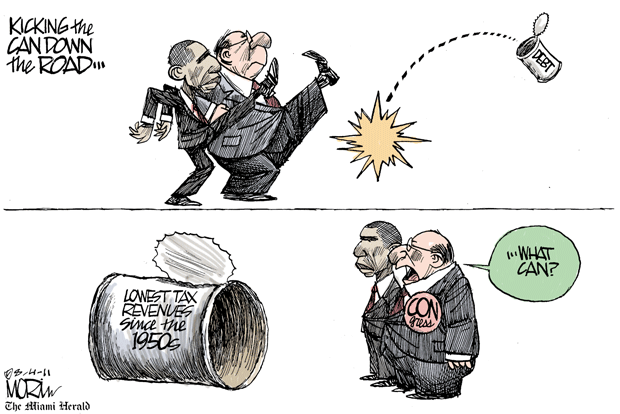

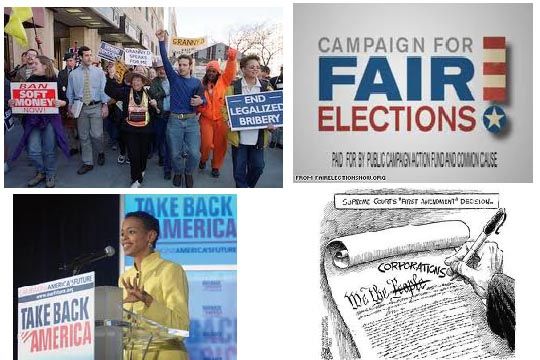
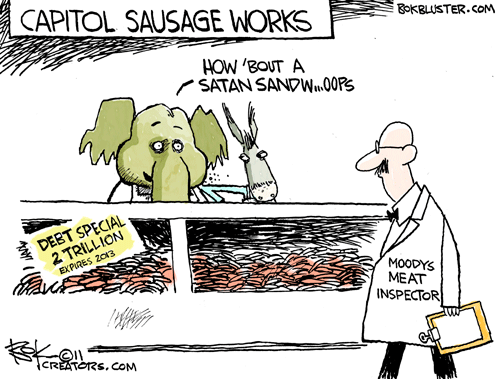
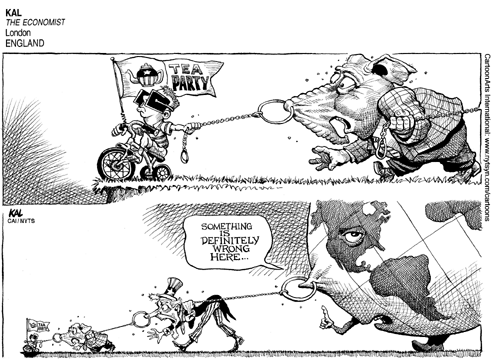
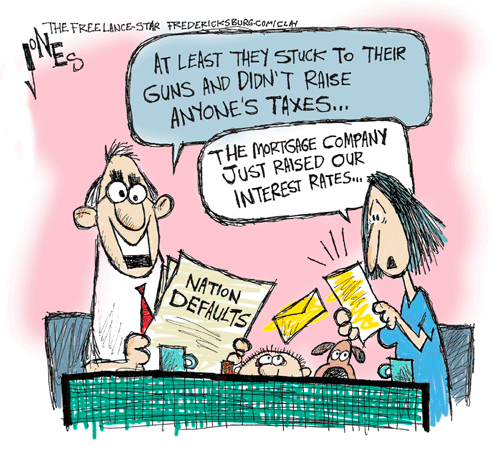
Recent Comments